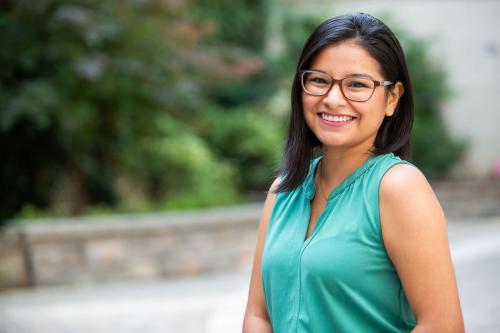Parent-Child Neural Dynamics during a Stressful Task: Probing Associations with Temperament and Anxiety
Parent-child interactions are central to children’s socioemotional development, and growing evidence suggests these dynamic exchanges may shape anxiety risk in ways that extend beyond shared genetics. While behavioral synchrony has long been studied, less is known about how brain-to-brain coupling—neural synchrony—might serve as a biological mechanism linking parent-child interaction patterns to child outcomes. In this talk, I present data from 109 parent-child dyads (children aged 4–8) who participated in a mildly stressful observational task (DB-DOS: BioSync), while we recorded neural activity using functional near-infrared spectroscopy (fNIRS). I’ll share how synchrony between parent and child prefrontal regions shifted across baseline, stress, and recovery contexts, and how these patterns were moderated by child temperament.
Joscelin Rocha-Hidalgo, Ph.D. is a developmental scientist at Penn State University whose research examines how early caregiving and sociocultural contexts shape children’s neurocognitive and socioemotional development. Her work integrates behavioral, physiological, and neuroimaging methods (fNIRS, EEG, ECG, eye tracking) to investigate parent-child dynamics, emotion regulation, and intergenerational transmission of risk. She has also led research on bilingualism in early childhood, using longitudinal and person-centered approaches to explore how multilingual exposure relates to cognitive development. As an immigrant and first-generation scholar, Dr. Rocha-Hidalgo is deeply committed to equity in developmental science, both in her research and through her leadership in diversity initiatives such as Black in Psych.



